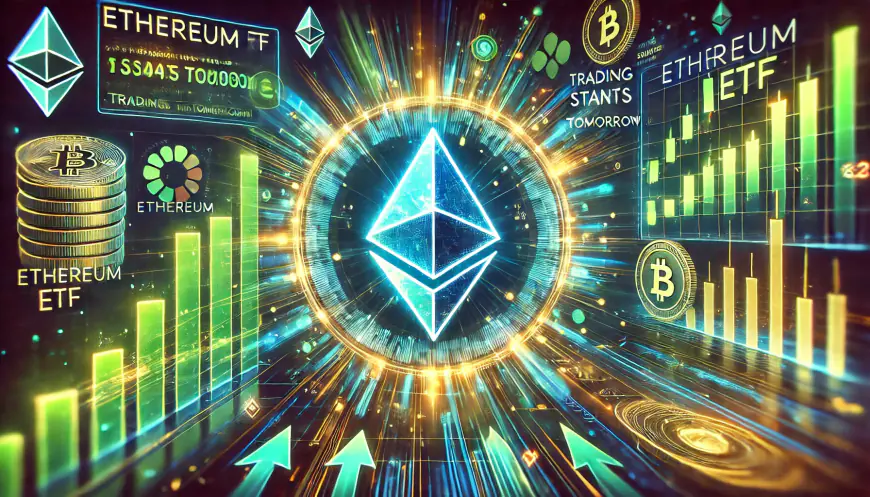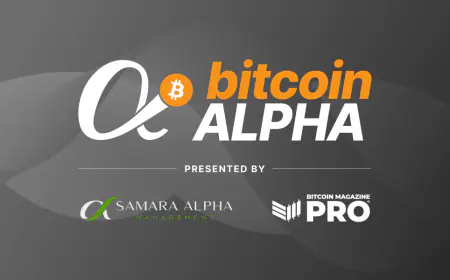Vitalik Calls for Open Standards to Strengthen Ethereum’s Global Ecosystem
In a blog post, Ethereum’s co-founder, Vitalik Buterin, emphasized the importance of open standards and alignment in the Ethereum ecosystem. Ethereum’s ETH is swapping hands with $2,626.04, marking a 1.63% and 1.93% decline in the past 24 hours and week, respectively. Ethereum has faced challenges like other crypto projects despite being a dominant force in [...]


- In a blog post, Ethereum’s co-founder, Vitalik Buterin, emphasized the importance of open standards and alignment in the Ethereum ecosystem.
- Ethereum’s ETH is swapping hands with $2,626.04, marking a 1.63% and 1.93% decline in the past 24 hours and week, respectively.
Ethereum has faced challenges like other crypto projects despite being a dominant force in the cryptocurrency world. For one, the Ethereum ecosystem has failed to balance decentralization and cooperation.
However, Ethereum has evolved to become a sprawling network shaped by the diverse contributions of client teams, researchers, layer two developers, application builders, and local communities. While this variety of ideas enriches the ecosystem, it can also create fragmentation. The challenge remains to bring all the contributions together to build a cohesive Ethereum ecosystem.
Noticing this, the Ethereum co-founder took the stage to emphasize via a blog post the need for “Ethereum alignment.” In essence, this alignment includes values such as being open source, minimizing centralization, and supporting public goods.
Open Source: According to Vitalik, Open Source is crucial for code security through inspection and reducing reliance on proprietary solutions. Core infrastructure components should be open source to ensure transparency and accessibility. The gold standard here lies in the Free Software Foundation (FSF) and Open Source Initiative (OSI) definitions.
Open Standards: Projects should strive for interoperability by building upon existing standards like ERC-20 and ERC-1271 or those under development. If a new feature requires a novel standard, collaboration on a new ERC is encouraged. Compatibility with existing standards can be a factor in rating applications and wallets.
Decentralization and Security: Minimizing trust points, censorship vulnerabilities, and reliance on centralized infrastructure are key here. Metrics include the “walkaway test” and the “insider attack test. The L2beat rollup stages offer a helpful framework for formalizing these concepts.
Positive-Sum: Vitalik emphasized that projects should benefit the entire Ethereum community, not just their ecosystem. By this, I mean using ETH tokens, contributing to open-source development, and donating tokens or revenue to Ethereum public goods. Additionally, projects should strive to contribute positively to the world, promoting financial inclusion, supporting broader public goods, and developing technology with real-world utility.
These metrics won’t be a one-size-fits-all solution. Layer-2 scaling solutions, wallets, and decentralized applications will have different priorities. Additionally, the importance of these metrics might shift over time. The most prominent positive-sum metric is a commitment to token donation, a trend likely to continue with further development.
Meanwhile, ETH has plummeted, swapping hands with $2,626.04, marking a 1.63% and 1.93% decline in the past 24 hours and week, respectively. Additionally, ETH’s market cap has undergone a 1.57% decline, leaving the second-largest digital asset at 316.2 billion, not forfeiting a 35.42% surge in its 24-hour trading volume.
On the other hand, Bitcoin is swapping hands with $64,447.85, marking a 1.94% decline in the last 24 hours.
What's Your Reaction?









































































































